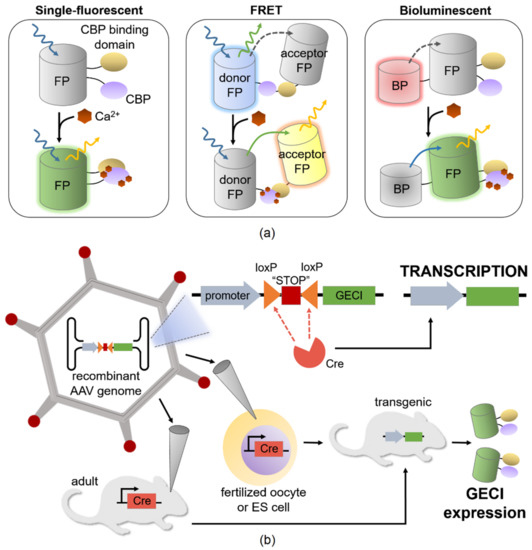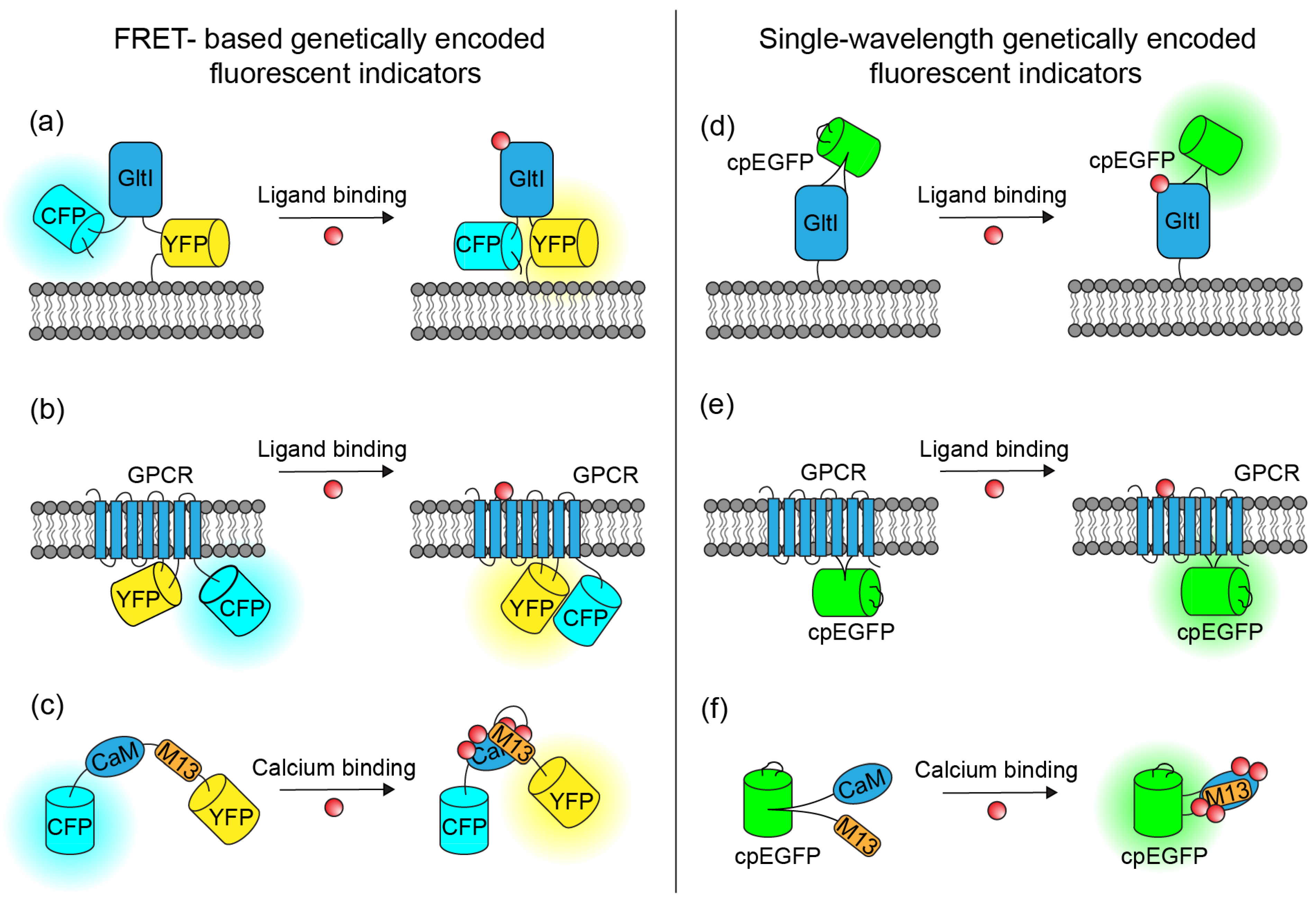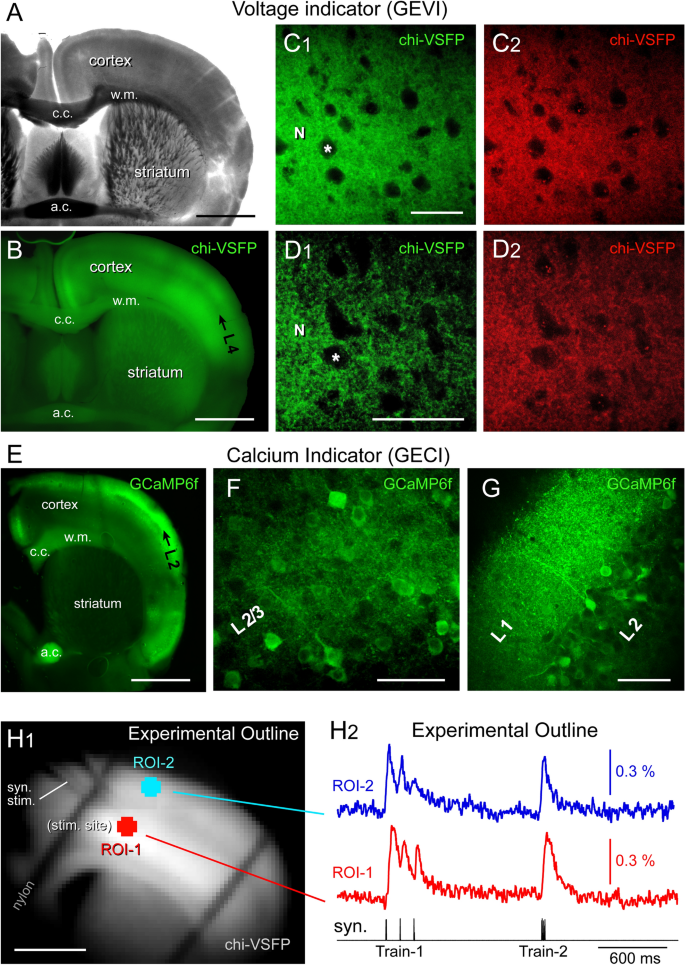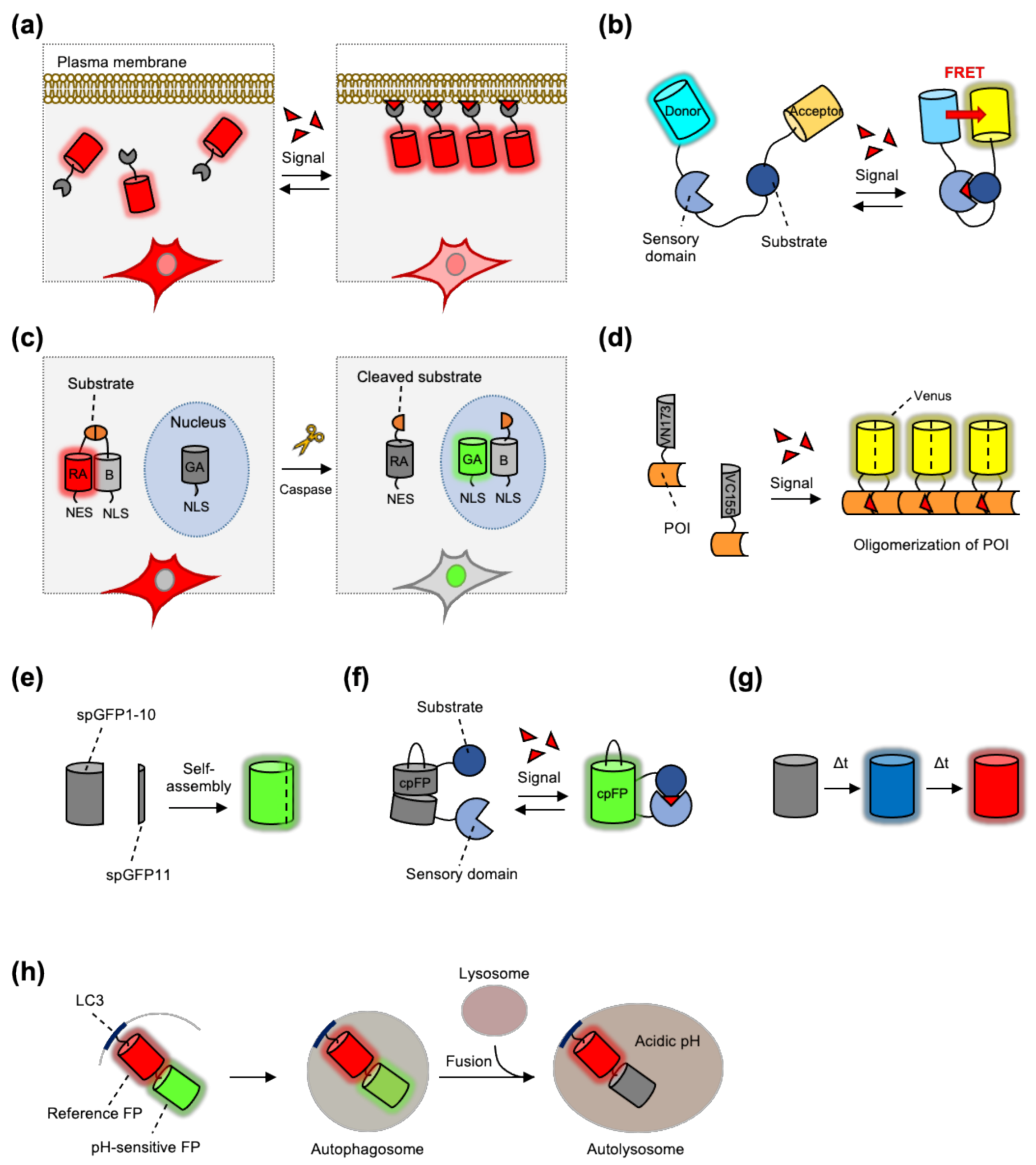Your Genetically encoded calcium indicators images are available. Genetically encoded calcium indicators are a topic that is being searched for and liked by netizens now. You can Download the Genetically encoded calcium indicators files here. Download all royalty-free photos.
If you’re looking for genetically encoded calcium indicators images information linked to the genetically encoded calcium indicators keyword, you have visit the right blog. Our site always provides you with hints for seeking the highest quality video and image content, please kindly hunt and find more enlightening video content and images that fit your interests.
Genetically Encoded Calcium Indicators. However progress has recently been accelerated by the use of cytosolic and membrane targeted genetically encoded calcium indicators GECIs. Take your neuroscience research further with our high-purity and highly cited biochemicals. Fundamentally GECI and GEVI measure. However the in vivo and in situ characterization of these indicators is tedious and time consuming and it does not provide information regarding the suitability of an.
 Biomolecules Free Full Text Optimizing Calcium Detection Methods In Animal Systems A Sandbox For Synthetic Biology Html From mdpi.com
Biomolecules Free Full Text Optimizing Calcium Detection Methods In Animal Systems A Sandbox For Synthetic Biology Html From mdpi.com
However the in vivo and in situ characterization of these indicators is tedious and time consuming and it does not provide information regarding the suitability of an. The use of organic Ca 2 indicator dyes such as Fluo-4 and Fura-2 has proved instrumental in the study of astrocyte physiology. Here we compared the performance of the genetically encoded calcium indicators GCaMP6s and GCaMP6f with the ratiometric dye Fura-2. 1Department of Plant Biology Carnegie Institution for Science Stanford CA USA. Near-infrared NIR genetically encoded calcium ion Ca 2 indicators GECIs can provide advantages over visible wavelength fluorescent GECIs in terms of reduced phototoxicity minimal spectral cross talk with visible light excitable optogenetic tools and fluorescent probes and decreased scattering and absorption in mammalian tissues. Genetically encoded calcium indicators for fluorescence imaging in the moss Physcomitrella.
GCaMP originally developed by Junichi Nakai 1 is an example of a GECI.
Take your neuroscience research further with our high-purity and highly cited biochemicals. GECIs are calcium buffers and therefore expression of GECIs may interfere with calcium homeostasis and signaling pathways important for neuronal differentiation and survival. Genetically encoded calcium indicators GECIs are indispensable tools for in vivo visualization of calcium dynamics. Novel Fluorescence-Based Biosensors Incorporating Unnatural Amino Acids. Genetically encoded calcium ion Ca 2 indicators have become very useful and widely used tools for Ca 2 imaging not only in cellular models but also in living organisms. Newer sensors such as genetically encoded calcium indicators or GECIs are delivered by viruses or bred into transgenic animals allowing expression that can be both long term and targeted to specific cell types.
Source: researchgate.net
GCaMP originally developed by Junichi Nakai 1 is an example of a GECI. Here we compared the performance of the genetically encoded calcium indicators GCaMP6s and GCaMP6f with the ratiometric dye Fura-2. Genetically encoded calcium indicators could potentially overcome some of the limitations of calcium-sensitive dyes. GCaMP originally developed by Junichi Nakai 1 is an example of a GECI. GECIs are composed of a sensory Ca 2 -binding domain eg calmodulin or troponin C that when bound to Ca 2 causes a conformational change that induces a fluorescence readout from the attached fluorescent proteins FPs.
 Source: researchgate.net
Source: researchgate.net
Novel Fluorescence-Based Biosensors Incorporating Unnatural Amino Acids. Genetically encoded calcium indicators could potentially overcome some of the limitations of calcium-sensitive dyes. Genetically encoded calcium indicators GECIs are indispensable tools for in vivo visualization of calcium dynamics. Genetically encoded calcium ion Ca 2 indicators have become very useful and widely used tools for Ca 2 imaging not only in cellular models but also in living organisms. GECIs are composed of a sensory Ca 2 -binding domain eg calmodulin or troponin C that when bound to Ca 2 causes a conformational change that induces a fluorescence readout from the attached fluorescent proteins FPs.
 Source: mdpi.com
Source: mdpi.com
Here we compared the performance of the genetically encoded calcium indicators GCaMP6s and GCaMP6f with the ratiometric dye Fura-2. The use of organic Ca 2 indicator dyes such as Fluo-4 and Fura-2 has proved instrumental in the study of astrocyte physiology. Wei Niu Jiantao Guo. Novel Fluorescence-Based Biosensors Incorporating Unnatural Amino Acids. GCaMP6s performed as well or better than Fura-2 in detecting agonist-induced calcium transients.
 Source: researchgate.net
Source: researchgate.net
Genetically encoded calcium indicators GECIs are indispensable tools for in vivo visualization of calcium dynamics. Wei Niu Jiantao Guo. A battery of genetically encoded calcium indicators GECIs with different binding kinetics and calcium affinities was developed over the recent years to permit long-term calcium imaging. Genetically encoded calcium indicators GECIs GECIs measure calcium the key signal molecule underlying cell functions such as heart vessel and airway contraction lung secretion autonomic neurotransmission and immunocyte function. Newer sensors such as genetically encoded calcium indicators or GECIs are delivered by viruses or bred into transgenic animals allowing expression that can be both long term and targeted to specific cell types.
 Source: nature.com
Source: nature.com
Genetically encoded biosensors for neuronal activity 2 based on FPs including genetically encoded Ca 2 indicators GECIs combined with modern in vivo imaging techniques 3. However progress has recently been accelerated by the use of cytosolic and membrane targeted genetically encoded calcium indicators GECIs. Genetically Encoded Calcium Indicators as Probes to Assess the Role of Calcium Channels in Disease and for High-Throughput Drug Discovery. The use of organic Ca 2 indicator dyes such as Fluo-4 and Fura-2 has proved instrumental in the study of astrocyte physiology. GECIs are composed of a sensory Ca 2 -binding domain eg calmodulin or troponin C that when bound to Ca 2 causes a conformational change that induces a fluorescence readout from the attached fluorescent proteins FPs.
 Source: mdpi.com
Source: mdpi.com
However the in vivo and in situ characterization of these indicators is tedious and time consuming and it does not provide information regarding the suitability of an. Take your neuroscience research further with our high-purity and highly cited biochemicals. GECIs are calcium buffers and therefore expression of GECIs may interfere with calcium homeostasis and signaling pathways important for neuronal differentiation and survival. Wei Niu Jiantao Guo. Take your neuroscience research further with our high-purity and highly cited biochemicals.
 Source: researchgate.net
Source: researchgate.net
However the in vivo and in situ characterization of these indicators is tedious and time consuming and it does not provide information regarding the suitability of an. However the in vivo and in situ characterization of these indicators is tedious and time consuming and it does not provide information regarding the suitability of an. Genetically encoded calcium indicators GECIs GECIs measure calcium the key signal molecule underlying cell functions such as heart vessel and airway contraction lung secretion autonomic neurotransmission and immunocyte function. Kleist TJ12 Cartwright HN1 Perera AM23 Christianson ML2 Lemaux PG2 Luan S2. Genetically encoded calcium indicators could potentially overcome some of the limitations of calcium-sensitive dyes.
 Source: wikiwand.com
Source: wikiwand.com
Fundamentally GECI and GEVI measure. Genetically encoded calcium ion Ca 2 indicators have become very useful and widely used tools for Ca 2 imaging not only in cellular models but also in living organisms. Kleist TJ12 Cartwright HN1 Perera AM23 Christianson ML2 Lemaux PG2 Luan S2. The use of organic Ca 2 indicator dyes such as Fluo-4 and Fura-2 has proved instrumental in the study of astrocyte physiology. Genetically encoded calcium indicators could potentially overcome some of the limitations of calcium-sensitive dyes.
 Source: researchgate.net
Source: researchgate.net
GECIs are composed of a sensory Ca 2 -binding domain eg calmodulin or troponin C that when bound to Ca 2 causes a conformational change that induces a fluorescence readout from the attached fluorescent proteins FPs. A battery of genetically encoded calcium indicators GECIs with different binding kinetics and calcium affinities was developed over the recent years to permit long-term calcium imaging. Genetically encoded calcium indicators GECIs are indispensable tools for in vivo visualization of calcium dynamics. Ad Find your calcium indicator now Validated for your research. Genetically encoded biosensors for neuronal activity 2 based on FPs including genetically encoded Ca 2 indicators GECIs combined with modern in vivo imaging techniques 3.
Source: journals.plos.org
However progress has recently been accelerated by the use of cytosolic and membrane targeted genetically encoded calcium indicators GECIs. Ad Find your calcium indicator now Validated for your research. Fundamentally GECI and GEVI measure. Take your neuroscience research further with our high-purity and highly cited biochemicals. However progress has recently been accelerated by the use of cytosolic and membrane targeted genetically encoded calcium indicators GECIs.
 Source: researchgate.net
Source: researchgate.net
Novel Fluorescence-Based Biosensors Incorporating Unnatural Amino Acids. Near-infrared NIR genetically encoded calcium ion Ca 2 indicators GECIs can provide advantages over visible wavelength fluorescent GECIs in terms of reduced phototoxicity minimal spectral cross talk with visible light excitable optogenetic tools and fluorescent probes and decreased scattering and absorption in mammalian tissues. They can be used both in cell cultures and living animals and. Novel Fluorescence-Based Biosensors Incorporating Unnatural Amino Acids. Extracellular Ca 2 enhances each one of these processes.
 Source: researchgate.net
Source: researchgate.net
Fundamentally GECI and GEVI measure. Novel Fluorescence-Based Biosensors Incorporating Unnatural Amino Acids. Genetically encoded calcium indicators GECIs GECIs measure calcium the key signal molecule underlying cell functions such as heart vessel and airway contraction lung secretion autonomic neurotransmission and immunocyte function. GECIs are composed of a sensory Ca 2 -binding domain eg calmodulin or troponin C that when bound to Ca 2 causes a conformational change that induces a fluorescence readout from the attached fluorescent proteins FPs. However progress has recently been accelerated by the use of cytosolic and membrane targeted genetically encoded calcium indicators GECIs.
 Source: researchgate.net
Source: researchgate.net
Genetically encoded calcium indicators for fluorescence imaging in the moss Physcomitrella. The use of organic Ca 2 indicator dyes such as Fluo-4 and Fura-2 has proved instrumental in the study of astrocyte physiology. Novel Fluorescence-Based Biosensors Incorporating Unnatural Amino Acids. 1Department of Plant Biology Carnegie Institution for Science Stanford CA USA. GCaMP3 provides a bright new look.
Source: journals.plos.org
However progress has recently been accelerated by the use of cytosolic and membrane targeted genetically encoded calcium indicators GECIs. Genetically Encoded Calcium Indicators as Probes to Assess the Role of Calcium Channels in Disease and for High-Throughput Drug Discovery. They can be used both in cell cultures and living animals and. A battery of genetically encoded calcium indicators GECIs with different binding kinetics and calcium affinities was developed over the recent years to permit long-term calcium imaging. GCaMP6s performed as well or better than Fura-2 in detecting agonist-induced calcium transients.
 Source: researchgate.net
Source: researchgate.net
Near-infrared NIR genetically encoded calcium ion Ca 2 indicators GECIs can provide advantages over visible wavelength fluorescent GECIs in terms of reduced phototoxicity minimal spectral cross talk with visible light excitable optogenetic tools and fluorescent probes and decreased scattering and absorption in mammalian tissues. We used tachyzoite clonal lines expressing genetically encoded calcium indicators combined with host cells expressing transiently expressed calcium indicators of different colors and we measured Ca 2 changes in both parasites and host simultaneously during egress. However progress has recently been accelerated by the use of cytosolic and membrane targeted genetically encoded calcium indicators GECIs. GCaMP originally developed by Junichi Nakai 1 is an example of a GECI. Wei Niu Jiantao Guo.
 Source: researchgate.net
Source: researchgate.net
Genetically encoded calcium ion Ca 2 indicators have become very useful and widely used tools for Ca 2 imaging not only in cellular models but also in living organisms. Genetically encoded calcium indicators could potentially overcome some of the limitations of calcium-sensitive dyes. Take your neuroscience research further with our high-purity and highly cited biochemicals. Ad Find your calcium indicator now Validated for your research. However the in vivo and in situ characterization of these indicators is tedious and time consuming and it does not provide information regarding the suitability of an.
 Source: bsa.tsinghuajournals.com
Source: bsa.tsinghuajournals.com
GCaMP6s performed as well or better than Fura-2 in detecting agonist-induced calcium transients. GCaMP6s performed as well or better than Fura-2 in detecting agonist-induced calcium transients. We used tachyzoite clonal lines expressing genetically encoded calcium indicators combined with host cells expressing transiently expressed calcium indicators of different colors and we measured Ca 2 changes in both parasites and host simultaneously during egress. Genetically encoded biosensors for neuronal activity 2 based on FPs including genetically encoded Ca 2 indicators GECIs combined with modern in vivo imaging techniques 3. They can be used both in cell cultures and living animals and.
 Source: mdpi.com
Source: mdpi.com
GCaMP originally developed by Junichi Nakai 1 is an example of a GECI. Near-infrared NIR genetically encoded calcium ion Ca 2 indicators GECIs can provide advantages over visible wavelength fluorescent GECIs in terms of reduced phototoxicity minimal spectral cross talk with visible light excitable optogenetic tools and fluorescent probes and decreased scattering and absorption in mammalian tissues. Genetically-encoded calcium indicators GECIs are essential for studying brain function while voltage indicators GEVIs are slowly permeating neuroscience. Genetically encoded calcium indicators for fluorescence imaging in the moss Physcomitrella. GCaMP6s performed as well or better than Fura-2 in detecting agonist-induced calcium transients.
This site is an open community for users to submit their favorite wallpapers on the internet, all images or pictures in this website are for personal wallpaper use only, it is stricly prohibited to use this wallpaper for commercial purposes, if you are the author and find this image is shared without your permission, please kindly raise a DMCA report to Us.
If you find this site adventageous, please support us by sharing this posts to your preference social media accounts like Facebook, Instagram and so on or you can also bookmark this blog page with the title genetically encoded calcium indicators by using Ctrl + D for devices a laptop with a Windows operating system or Command + D for laptops with an Apple operating system. If you use a smartphone, you can also use the drawer menu of the browser you are using. Whether it’s a Windows, Mac, iOS or Android operating system, you will still be able to bookmark this website.





